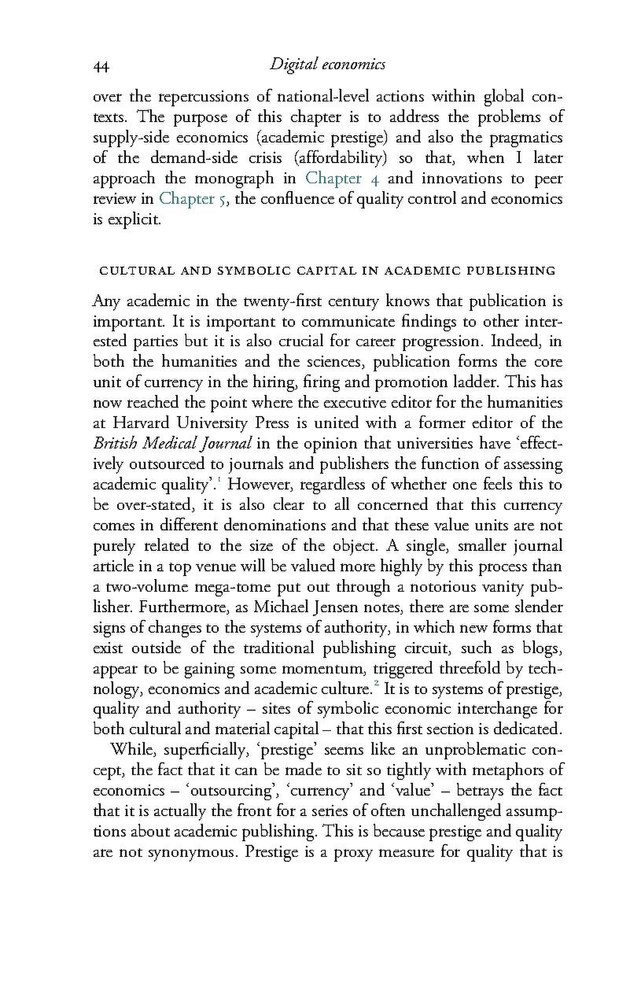over the repercussions of national-level actions within global contexts. The purpose of this chapter is to address the problems of supply-side economics (academic prestige) and also the pragmatics of the demand-side crisis (affordability) so that, when I later approach the monograph in Chapter 4 and innovations to peer review in Chapter 5, the confluence of quality control and economics is explicit.
cultural and symbolic capital in academic publishing
Any academic in the twenty-first century knows that publication is important. It is important to communicate findings to other interested parties but it is also crucial for career progression. Indeed, in both the humanities and the sciences, publication forms the core unit of currency in the hiring, firing and promotion ladder. This has now reached the point where the executive editor for the humanities at Harvard University Press is united with a former editor of the British Medical Journal in the opinion that universities have ‘effectively outsourced to journals and publishers the function of assessing academic quality’.1 However, regardless of whether one feels this to be over-stated, it is also clear to all concerned that this currency comes in different denominations and that these value units are not purely related to the size of the object. A single, smaller journal article in a top venue will be valued more highly by this process than a two-volume mega-tome put out through a notorious vanity publisher. Furthermore, as Michael Jensen notes, there are some slender signs of changes to the systems of authority, in which new forms that exist outside of the traditional publishing circuit, such as blogs, appear to be gaining some momentum, triggered threefold by technology, economics and academic culture.2 It is to systems of prestige, quality and authority – sites of symbolic economic interchange for both cultural and material capital – that this first section is dedicated.
While, superficially, ‘prestige’ seems like an unproblematic concept, the fact that it can be made to sit so tightly with metaphors of economics – ‘outsourcing’, ‘currency’ and ‘value’ – betrays the fact that it is actually the front for a series of often unchallenged assumptions about academic publishing. This is because prestige and quality are not synonymous. Prestige is a proxy measure for quality that is
